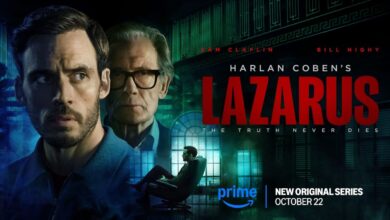The Last of Us Episode 3 Review: An Unexpected and Surprising Detour
The review of The Last of Us Episode 3, the series based on the famous video game of the same name created by Craig Mazin and Neil Druckmann.
Cast: Pedro Pascal, Bella Ramsey, Nick Offerman and Murray Bartlett
Director: Peter Hoar
Streaming Platform: HBO Max
Filmyhype.com Ratings: 4.5/5 (four and a half stars)
The Last of Us Episode 3 is entitled “Long Long Time” and will be broadcast, directed by Peter Hoar, winner of a BAFTA Award for the mini-series It’s a Sin and former director, among others, of two episodes of the first season of The Umbrella Academy (1 and 10) and three episodes of Daredevil Season 2 (4, 10 and 13). Given the episode’s airing, you can enjoy the video preview attached at the top of this news story, specially packaged by HBO. After the events of the second episode, Joel and Ellie walk toward Lincoln, where they meet Bill and Frank, two survivors who have spent the last few years barricaded in the town. Bill, who is distinguished by rather rigid survival methods, is played by Nick Offerman, an actor known for Parks & Recreation, while Frank was brought to the screen by Murray Bartlett, already seen in The White Lotus.
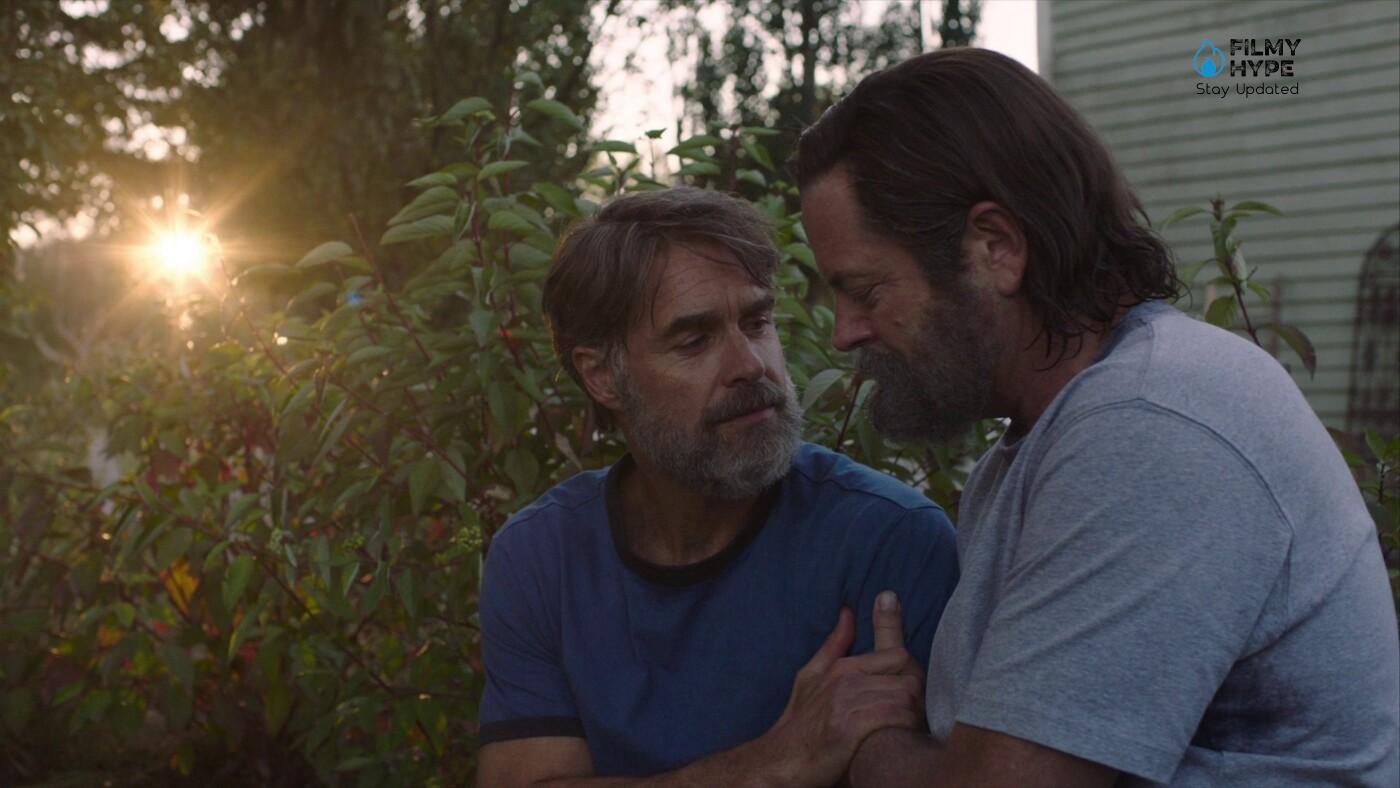
While the course of the narrative sees Joel and Ellie embark on their long journey to Wyoming, the main plot meets a slight setback: departing from the protagonists, Neil Druckmann and Craig Mazin make the most of the time at their disposal to tell a true and its side-story destined to be discussed, but with revolutionary intentions compared to what has been presented so far and to the ideas about the adaptation of the show. Many crew members had long anticipated the peculiarity of this episode and its potential impact on the public. Now we understand why. Beyond any consideration extraneous to what is shown, the analysis of this bittersweet filler will allow us to see much more than a few interesting details – not only for the internal balance of the show but for the entire communicative-production dynamic of the series.
The Last of Us Episode 3 Review: The Story Plot
After they escape from Boston, Joel (Pedro Pascal) and Ellie (Bella Ramsey) still find themselves metabolizing what happened, hinting at some brief interactions that could make their relationship less angular. Passing between abandoned highways and desolate ruins, the thought of two individuals already widely mentioned in the first few episodes leads the viewer’s attention to move elsewhere, thus leaving room for a very rare digression from the main route. In an extreme act of deepening and contextualization, so far never so clear and pushed compared to what little was shown in the video game, the story of Bill (Nick Offerman) and Frank (Murray Bartlett) is narrated from start to finish with a decidedly intimate and introspective.
Observing how Bill managed to create a little corner of paradise, turning his existence upside down with the arrival of Frank and the subsequent correspondence with Joel and Tess, the development of the relationship between the two creates a delicate and almost alienating story compared to the now shattered world seen throughout the show. By focusing on the ups and downs, fears and worries of a couple of characters eager to live a normal life, The Last of Us wants to offer a different perspective to the drama, trying to represent love in its way extremely privileged context compared to any other. For almost an hour, the terrible dynamics of a drifting world seem distant nightmares and every little internal turbulence acquires extreme value concerning the perspective of the characters involved in the events. Maintaining a surprising stylistic coherence even in telling a story that seems alien, the short interludes granted at the beginning, middle and end of the episode create the perfect link with the well-known narrative.
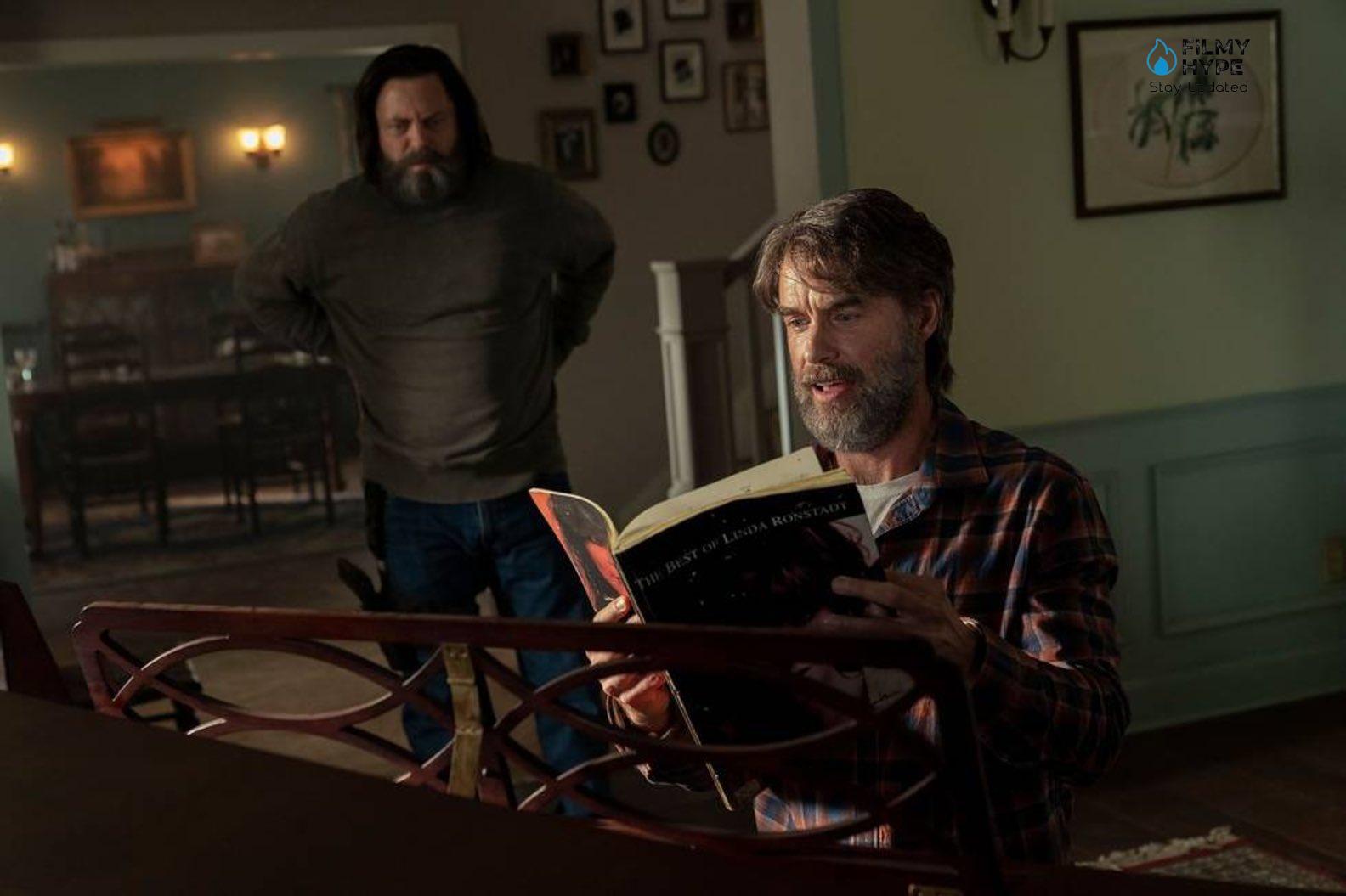
Once entered the coils of the story, however, the characters appear so transparent and human as to involve the observer in a whirlwind of emotions that cannot leave one indifferent due to how it explores subtle dynamics and particularly sensitive themes. Catapulting the audience into the heartbreaking testimony of Bill and Frank, Druckmann boldly shows his intention to tell humanity through multiple points of view, exploring stories of real life in an enveloping way along paths never traveled before. Combining ethereal atmospheres and moments of incredible stillness, the heart of the episode focuses not on tension, but on drama, creating a purer and more understandable reality than ever for anyone who finds themselves observing the development of events.
The Last of Us Episode 3 Review and Analysis
By meticulously taking care of the aesthetics of the context and the scenarios, Druckmann and Mazin allow themselves to take risks like never before, completely distancing themselves from the protagonists to linger on a story with completely different consequences than the source. The great divergence from the original material is undoubtedly the largest and will probably be the most divisive in the eyes of the fans, but it perfectly recalls the style that made Naughty Dog’s masterpieces famous, creating sequences capable of distinguishing themselves from any other work such for their precise focus. Directed by Peter Hoar delicately observes the characters, scrutinizing looks more expressive than any word, sipping accelerations in terms of rhythm and even risking giving way in some situations.
However, the time jumps, and the various changes of perspective make the story full of information and intriguing elements, especially for those familiar with certain plot details. The photography is surprising and imbues the scenes with an almost heartfelt warmth, caressing the idea of love with daring shots without ever exceeding its representation. Accompanied by an extremely significant soundtrack, pain and loss are mixed upside down in a game of plots capable of captivating even the most skeptical. The one proposed in the third episode of The Last of Us could easily turn out to be a small thematic labyrinth from which you can draw for hours and hours by analyzing the expository dynamics and the small tricks used in the writing. The story, a net of differences and twists, turns out to be very cohesive in its divergent nature, so full of meanings that it remains impressive more than any other episode so far.
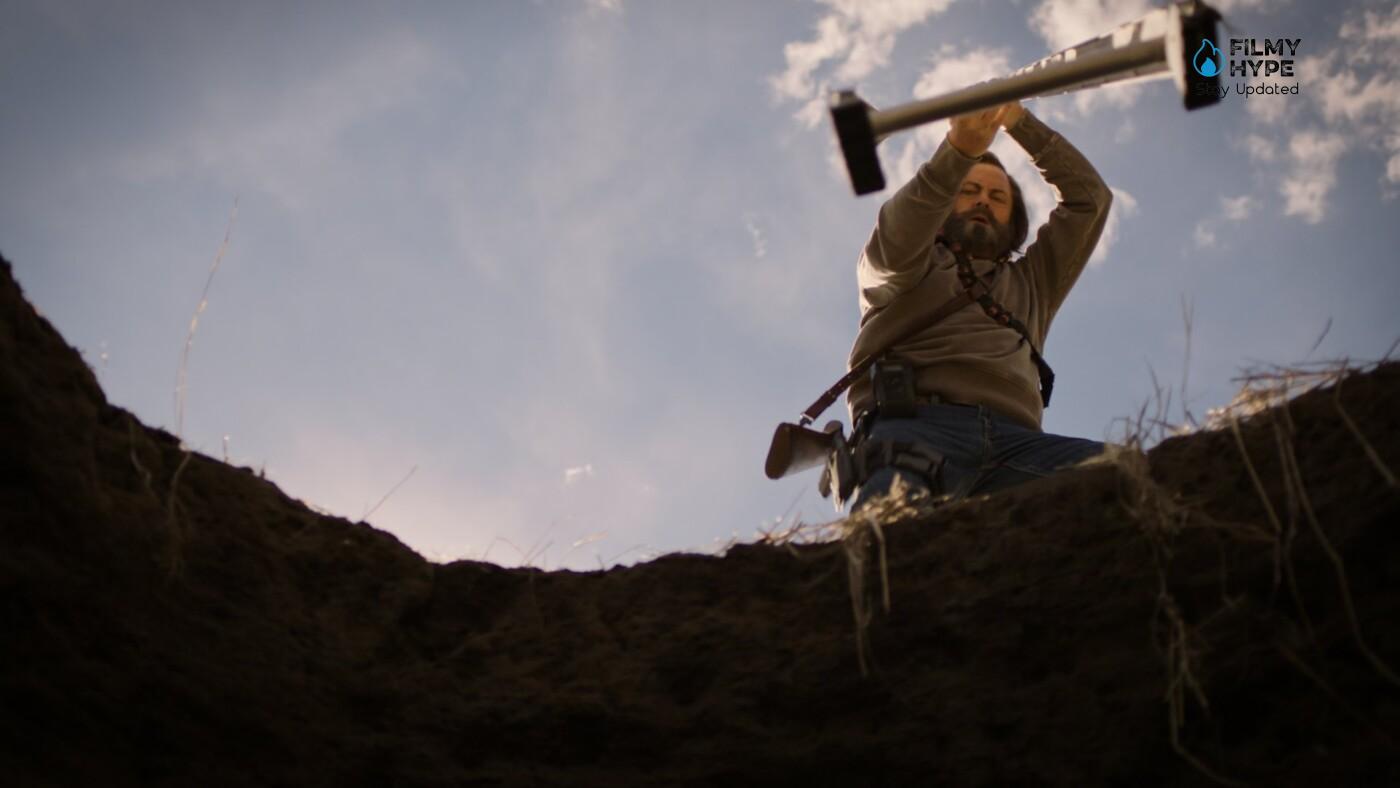
The authors don’t play with the horror of the post-apocalyptic context but bring the viewer closer to a more plausible and no longer alienating fear. Nick Offerman confirms the great expectations and gives life to a disruptive character: perfectly embodying the fear and fragility of loss, how Bill’s inner pain lets itself be scrutinized allows the showrunners to present otherwise inaccessible elements, giving weight unexpected to themes that could easily seem too distant from the world in which the series takes place. As Joel once again comes to terms with pain and Ellie finds an opportunity to explore long-buried sensations, Bill and Frank’s parable once again shows that every look, every breath, and every life matters in The Last of Us. Whatever one might think about the previous relationship between the characters, or the narrative choices taken into consideration, Lincoln’s is a heartbreaking tale born from the desire to realize a dream of pure normality.
Druckmann and Mazin fearlessly take risks and take a step forward that is certainly important for future representations. Everyone, for style or emphasis, will have to deal with something. The episode tells something potentially uncomfortable without falling into politically correct opportunism but rather changes markedly to show a deeper caliber of a message already implied on several occasions. The intention of The Last of Us, in its storylines as in its connections, is to keep men at the center of its poignant apocalyptic tale. Getting as close as ever to reality in a brutally honest story, between mirages of love and sacrifice, the third installment of this memorable series brings to light the most real tragedy, capable of overcoming even an enemy on a global scale: the ineluctable human frailty.
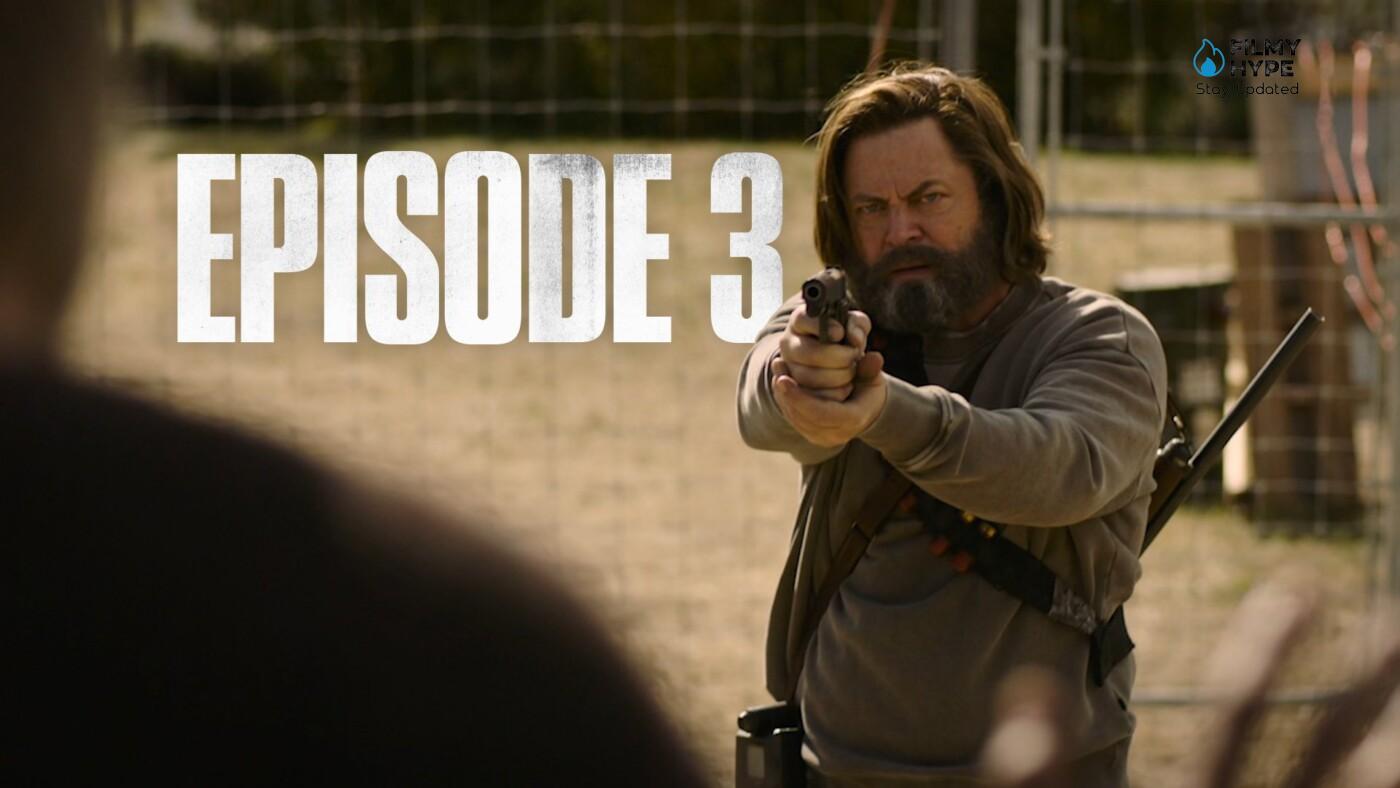
Focusing briefly on the main cast of this third episode, we can only underline how much Nick Offerman and Murray Bartlett convinced us in the roles of Bill and Frank, respectively. Both manage to bring to life two intense and layered characters, even in the limited time available to do so. In particular, Offerman brings to the screen a Bill that you can’t help but adore right from his first entrance on the scene: surly, tough and ready for anything, but also extremely sensitive, protective and funny (the letter he leaves to Joel, on final, is a perfect summation of all these qualities). Long Long Time also allows us to get to know Bella Ramsey’s Ellie a little better, who in the first few minutes of footage follows an elated Joel as he discovers the outside world, full of surprises but also terrifying secrets. The encounter with an infected shows us once again how fierce, stubborn and courageous her character can be, to the point that – with each passing episode – we can only become more and more attached to her.
The Last of Us Episode 3 Review: The Last Words
The Last of Us changes once again in the atmosphere with a third episode that tells the touching love story between Bill and Frank. Particularly exciting also thanks to the interpretations of Nick Offerman and Murray Bartlett. Taking more than a few risks in diverging significantly from the source, The Last of Us stages an episode that is almost unrelated to the events narrated, which however proves to be phenomenal in staging despite some slight decline in the management of the rhythm. Showing a much more delicate emphasis than in the general perspective of the work, but no less courageous for this, the third installment demonstrates once again that Druckmann and Mazin intend to place man and the heart at the center of their work.





